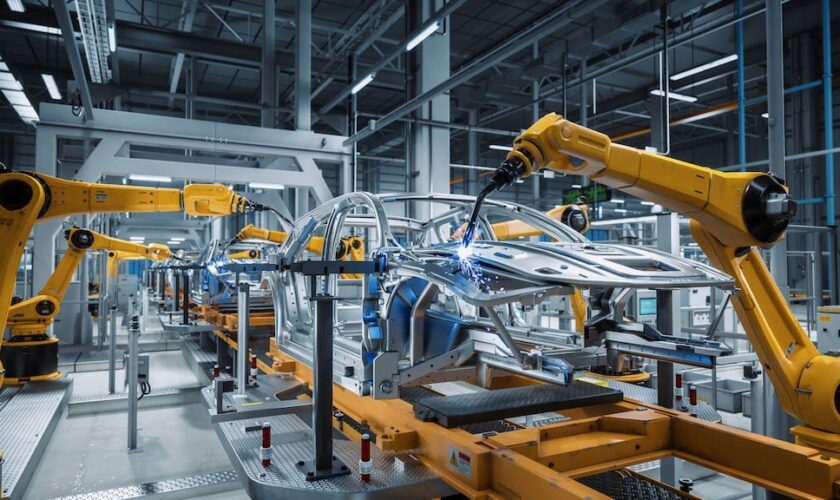In the realm of industrial manufacturing, the integration of robotics has transcended the realm of innovation to become a driving force behind efficiency, precision, and automation. This article delves into the transformative impact of robotics in industry, shedding light on how these mechanical marvels are redefining the landscape of manufacturing processes.
1. Automated Assembly Lines: Precision and Speed
One of the cornerstones of robotics in industry is the deployment of automated assembly lines. Robots equipped with advanced sensors and programming can perform intricate tasks with unmatched precision and speed. These mechanical workers excel in repetitive tasks, ensuring consistent product quality while significantly reducing production time.
2. Increased Efficiency and Productivity
The infusion of robotics into manufacturing processes translates to a substantial increase in efficiency and productivity. Robots can operate around the clock without the need for breaks or shifts, leading to a significant reduction in production time. This heightened efficiency not only accelerates the manufacturing process but also contributes to overall cost-effectiveness.
3. Precision Engineering with Robotic Arms
Robotic arms, equipped with sophisticated sensors and precise actuators, are revolutionizing precision engineering. These mechanical limbs can perform intricate maneuvers with microscopic accuracy, enabling tasks such as welding, cutting, and assembling delicate components. The result is a level of precision that surpasses human capabilities, ensuring high-quality output in manufacturing.
4. Quality Control and Inspection
Incorporating robotics into quality control processes ensures a meticulous and consistent examination of finished products. Robots equipped with vision systems and sensors can identify defects, measure dimensions, and perform detailed inspections at a speed that human labor cannot match. This automated quality control mechanism contributes to the production of flawless and standardized goods.
5. Material Handling and Logistics Optimization
Robotic systems play a pivotal role in material handling and logistics within industrial settings. Automated guided vehicles (AGVs) and robotic arms can efficiently transport raw materials, components, and finished products throughout the manufacturing facility. This optimization of material flow enhances overall logistics, minimizing delays and maximizing the utilization of resources.
6. Collaborative Robotics (Cobots): A Human-Machine Symphony
The advent of collaborative robotics, or cobots, introduces a harmonious collaboration between humans and machines. Cobots are designed to work alongside human operators, taking on strenuous or hazardous tasks, while humans focus on more complex decision-making aspects. This synergy between human expertise and robotic precision enhances overall efficiency and workplace safety.
7. Flexibility in Manufacturing Processes
Robotics in industry introduces a level of flexibility that traditional manufacturing processes struggle to achieve. Robotic systems can be easily reprogrammed and adapted to different tasks, making them versatile tools in dynamic manufacturing environments. This flexibility allows manufacturers to respond rapidly to changes in product demand and customization requirements.
8. Return on Investment (ROI) in Automation
While the initial investment in robotics may seem significant, the long-term benefits and return on investment in automation are substantial. The enhanced efficiency, reduced labor costs, and improved product quality contribute to a positive financial impact. As technology continues to advance, the ROI in robotics becomes increasingly attractive for manufacturers seeking sustainable growth.
The Robotic Revolution Unveiled
In the grand theater of industrial manufacturing, robotics takes center stage as a transformative force. The integration of these mechanical maestros into manufacturing processes is not just a leap in technology; it’s a strategic evolution towards precision, efficiency, and innovation. As the robotic revolution continues to unfold, industries worldwide are witnessing a new era where automation is not just a luxury but a necessity for staying competitive and driving progress.

